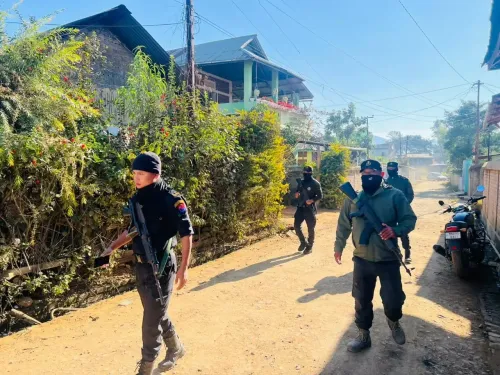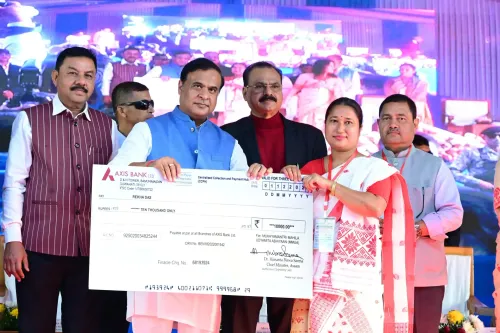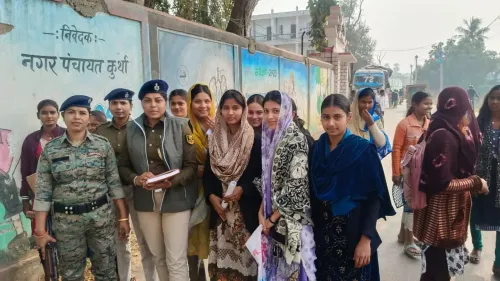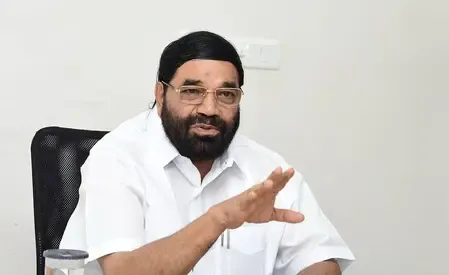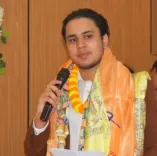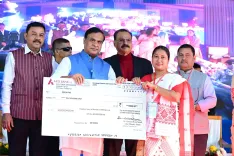Tamil Nadu Denounces NEP, PM-SHRI Scheme, and Hindi Imposition: School Education Minister
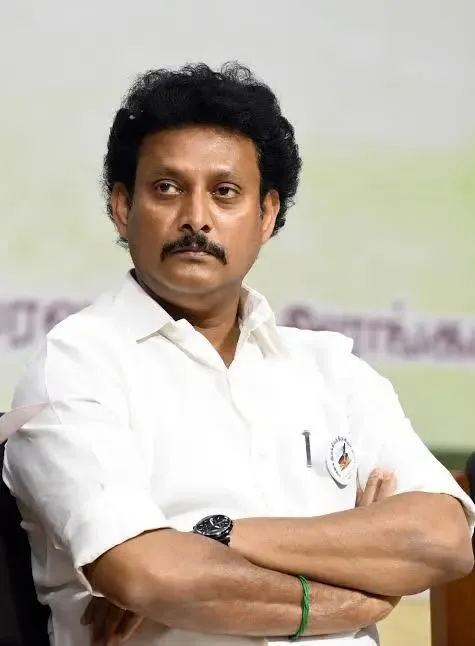
Synopsis
Key Takeaways
- Tamil Nadu rejects the National Education Policy (NEP).
- Criticism aimed at Union Minister Dharmendra Pradhan.
- Protest organized by the INDIA bloc.
- DMK opposes Hindi imposition under NEP.
- AIADMK also resists the three-language formula.
Chennai, Feb 18 (NationPress) Tamil Nadu's School Education Minister Anbil Mahesh Poyyamozhi on Tuesday vehemently condemned Union Education Minister Dharmendra Pradhan for his recent comments concerning the allocation of funds under the Samagra Shiksha scheme.
The Union Minister indicated that Tamil Nadu would not receive these funds unless the state fully embraced the National Education Policy (NEP).
During a protest organized by the INDIA bloc here, Poyyamozhi reiterated the Tamil Nadu government’s position, stating: "We reject the National Education Policy (NEP), the PM-SHRI scheme, and Hindi imposition."
He accused the Union government of trying to coerce states into adopting NEP and its components, but emphasized that Tamil Nadu would not yield to such pressure.
The Centre and Tamil Nadu have been in conflict over the implementation of NEP, particularly its three-language formula.
The ruling DMK party has consistently opposed NEP, claiming that it aims to impose Hindi under the guise of multilingual education. It has also accused the Centre of pursuing an anti-Dravidian and anti-Tamil agenda.
Union Minister Pradhan, however, dismissed these allegations, arguing that the DMK-led Tamil Nadu government was politicizing the policy. He questioned why Tamil Nadu was resisting NEP when most other states had adopted it.
Pradhan further asserted that Tamil Nadu had initially agreed to the Centre’s conditions but later reneged. Speaking at the Kashi Tamil Sangamam event in Varanasi, he stated: "They (the state government) must follow constitutional norms and accept NEP in both letter and spirit."
DMK legislator Ezhilan pointed out that the Official Language (Use for Official Purposes of the Union) Rules, 1976 exempts Tamil Nadu from Hindi imposition. He added that anyone in the state who wishes to learn Hindi voluntarily is free to do so.
The ruling DMK has accused the Centre of recurring interference in the state’s affairs, infringing upon its rights.
The party stated that Tuesday’s protest was merely the beginning of a broader movement against NEP and its implementation in Tamil Nadu.
On Monday, the DMK issued a press statement denouncing Pradhan’s remarks.
"Union Education Minister Dharmendra Pradhan is threatening Tamil Nadu by warning that education funds will be withheld unless NEP is implemented. Finance Minister Nirmala Sitharaman has also shown bias in fund allocations, continuously overlooking projects for the state."
The statement further criticized the Centre for “overstepping using the office of the Governor” and attempting to “undermine the state’s education infrastructure” through the University Grants Commission (UGC). The party reiterated its view that NEP is an effort to impose Hindi and erode Tamil Nadu’s autonomy.
The principal opposition party, the AIADMK, has also opposed the three-language formula.
AIADMK General Secretary and former Chief Minister Edappadi K. Palaniswami (EPS) reaffirmed his party’s commitment to the two-language policy (Tamil and English), which has been established in the state for decades.
Expelled AIADMK leader and former Chief Minister O. Panneerselvam (OPS) also urged the Centre to cease its insistence on a trilingual policy, aligning himself with the DMK’s opposition to NEP’s language provisions.


